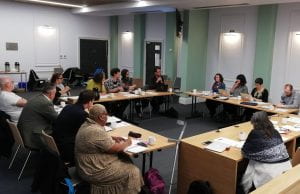By Prof Albert Sanchez-Graells, Professor of Economic Law (University of Bristol Law School), Dr Kirsi-Maria Halonen, Senior Lecturer in Law (University of Lapland, Finland), Prof Roberto Caranta, Professor of Administrative Law (Turin University, Italy)
 Together with competition and integrity, transparency is one of the fundamental pillars of every procurement system around the world. Much of the efforts to ensure probity in the expenditure of public funds through procurement concentrate on mandating competition-enabling transparency of contract opportunities and accountability-facilitating transparency of the outcome of procurement processes. In the European Union, the 2014 Public Procurement Package continued to place the principle of transparency amongst its general principles and established rather detailed disclosure obligations, including the mandatory publication of a wider range of electronic notices (including for contractual modifications), a consolidation of the tenderers’ rights to access information about the procurement process, and higher standards for documentation and record-keeping by the contracting authorities.
Together with competition and integrity, transparency is one of the fundamental pillars of every procurement system around the world. Much of the efforts to ensure probity in the expenditure of public funds through procurement concentrate on mandating competition-enabling transparency of contract opportunities and accountability-facilitating transparency of the outcome of procurement processes. In the European Union, the 2014 Public Procurement Package continued to place the principle of transparency amongst its general principles and established rather detailed disclosure obligations, including the mandatory publication of a wider range of electronic notices (including for contractual modifications), a consolidation of the tenderers’ rights to access information about the procurement process, and higher standards for documentation and record-keeping by the contracting authorities.
More generally, the push for the development and adoption of open data standards for public procurement—in particular by the Open Contracting Partnership—has renewed efforts to bring procurement under the open government umbrella and to facilitate higher levels of transparency and accountability, in particular through big data analysis. In the European Union, the Commission highlighted the importance of procurement transparency in its 2017 Communication on ‘Making procurement work in and for Europe’, stressing that ‘The digital transformation, the growing wealth of data in general and the availability of open data standards offer opportunities to create better analytics for needs-driven policy-making and warning systems to signal and tackle corruption in public procurement’. The Commission thus established the goal of increasing transparency, integrity and better data as one of its six key strategic priorities. In particular, the Commission advocated the creation of national public contract registers by the Member States, providing transparency on awarded contracts and their amendments to enable dialogue with civil society and hold governments more accountable. (more…)



